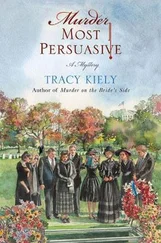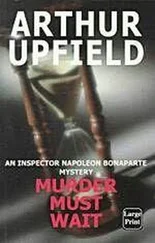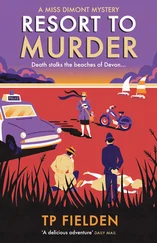He had called a travel agent and booked passage on a week-long Caribbean cruise where, if he was lucky, he might find someone as seasonally lonely as he was himself. A Love Boat fantasy that he tried desperately to make himself believe. He drove to the airport through swirling snow that froze to ice on the Volkswagen’s windshield. He checked his bags, went through security at the lower level, and was lounging near the departure gate for Flight 317, nonstop to Miami, when he heard his name over a microphone.
And learned that he’d been bumped.
“I’m very sorry. Mr. Mensing.” The passenger service rep seemed to look bored, solicitous, and in charge all at once. “We have to overbook flights because so many reserved-seat holders don’t cancel but don’t show up either. Today everyone showed up! You have a right to compensatory cash payment plus a half-fare coupon for the next Miami flight.” His racing fingers leafed through the schedule book. “Which departs in just five hours. If you’ll take this form to the counter on the upper level they’ll write you a fresh ticket.”
If he took the next flight he’d miss connections with the excursion ship. He kept his rage under control, detached himself from the horde of travelers at the departure gate, and stalked back upstairs to find a supervisor and demand a seat on the flight he was scheduled to take. When he saw the length of the line at the upper level he almost decided to go home and forget the cruise altogether.
A large metropolitan airport two days before Christmas. Men, women, children, bundled in overcoats and mufflers and down jackets and snowcaps, pushing and jostling and shuffling in the interminable lines that wove and shifted in front of the ticket counters like multicolored snakes. Thousands of voices merging into an earsplitting hum. View through panoramic windows of snow sifting through the gray afternoon, of autos and trucks and taxis crawling to a halt. Honeyed robot voices breaking into the recorded Christmas carols to make flight announcements no one could hear clearly.
Loren was standing apart from the line, trying to decide whether to join it or surrender his fantasy and go home, when it happened.
He heard a voice bellowing something through the wall of noise in the huge terminal. “Bon! Bonreem!” That was what it sounded like in the chaos. It was coming from a man standing to one side of the line like himself. A short sandy-haired man wearing jeans and a down jacket and red ski cap, shouting the syllables in a kind of fury. “Bonreem!”
A man standing in the line turned his head to the right, toward the source of the shout, as if he were hearing something that related to him. A woman in a tan all-weather coat with a rain hood, just behind the man in the line, began to turn her head in the same direction.
The sandy-haired man dropped into a combat crouch, drew a pistol from the pocket of his down jacket, and fired four times at the two who were turning. In the bedlam of the airport the shots sounded no louder than coughs. The next second the face of the man in the line was blown apart. Someone screamed. Then everyone screamed. The man with the shattered face fell to the tiled floor, his fingers still moving, clutching air. The line in front of the ticket counter dissolved into a kaleidoscope of figures running, fainting, shrieking. Instinctively Loren dropped to the floor.
The killer raced for the exit doors, stumbled over Loren’s outstretched feet, fell on one knee, hard, cried out in pain, picked himself up, and kept running. John Wilkes Booth flashed through Loren’s mind. He saw uniformed figures racing toward them, city and airport police, pistols drawn. Two of them blocked the exit doors. The killer wheeled left, stumbled down the main concourse out of sight, police rushing after him.
In the distance Loren heard more screams, then one final shot.
The public-address system was still playing “White Christmas.”
At first they put Loren in with the other witnesses, all of them herded into a large auditorium away from the public areas of the airport. Administrative people brought in doughnuts and urns of coffee on wheeled carts. The witnesses sat or stood in small knots—friends, family groups, total strangers, talking compulsively and pacing and clinging to each other. A few stood or sat alone. Loren was one of them. He was still stunned and he knew no one there to talk to.
After a while he pulled out of shock and looked around the room at the other loners. An old man with a wispy white mustache, probably a widower on his way to visit grandchildren for Christmas. A thin dour man with a cleft chin who blinked continually behind steel-rimmed glasses as if the sun were shining in his eyes. In a folding chair in a corner of the auditorium he saw the woman in the tan hooded coat, her head bowed, eyes indrawn, hugging herself and trying not to shudder. He started to get out of his chair and move toward her.
Another woman flung back the swing doors of the auditorium and stood in the entranceway, a tall fortyish woman in a pantsuit, her hair worn long and straight and liberally streaked with gray. “Loren Mensing?” she called out. Her strong voice cut through the hubbub of helpless little conversations in the vast room. “Is there a Loren Mensing here?”
Loren raised his hand and the woman came over to him. “I’m Gene Holt,” she said. “Sergeant Holt, city police, Homicide. You’re wanted in the conference room.”
He followed her to a room down the hall with a long oak table in the center, flanked by chairs. The air was thick with smoke from cigarettes and a few pipes. He counted at least twenty men in the room—airport police, local police, several in plainclothes. The man at the head of the conference table stood up and beckoned. “Lou Belford,” he introduced himself. “Special Agent in charge of the F. B. I, office for the area. The locals just told me you’re a sort of detective yourself in an oddball way.”
“I used to be deputy legal adviser on police matters for the mayor’s office,” Loren said. “A part-time position. I teach law for a living.”
“And you’ve helped crack some weird cases, right?”
“I’ve helped a few times,” Loren conceded.
“Well, we’ve got a weird one here, Professor,” Belford grunted. “And you’re our star witness. Tell me what you saw.”
As Loren told his story Belford scrawled notes on a pad. “It all fits,” he said finally. “The guy tripped over your feet and hurt his knee. When he saw he couldn’t get out the front exit he headed for the side doors that lead to the underground parking ramps. If he hadn’t stumbled over you he could have made it out of the building. Bad luck for him.”
“You caught him then? Who was he. and why did he kill that man?”
“We didn’t catch him,” Belford said. “Cornered him in the gift shop. He saw he was trapped and ate his gun. One shot, right through the mouth. Dead on the spot.”
Loren clenched his teeth.
“He wasn’t carrying ID.” Belford went on, “but we made him a while ago. His name was Frank Wilt. Vietnam vet, unemployed for the last three years. He couldn’t hold a job, claimed his head and body were all screwed up from exposure to that Agent Orange stuff they used in the war. The VA couldn’t do a thing to help him.”
“The man he killed worked for the Veterans Administration?” Loren guessed.
“No, no.” Belford shook his head impatiently. “Wilt was obviously desperate for money. It looks as if he took a contract to waste somebody. We just learned he put twenty-five hundred dollars in a bank account Monday. That part of the case is easy. It’s the other end we need help with.”
“Other end? You mean the victim?” Loren’s mind sped to a conclusion from the one fact he knew for certain. “So that’s why the F. B. I. are involved! Murder in an airport isn’t a Federal crime, and neither is murder by a veteran. So there must be something special about the victim.” He leaned forward, elbows on the conference table. “Who was he?”
Читать дальше












